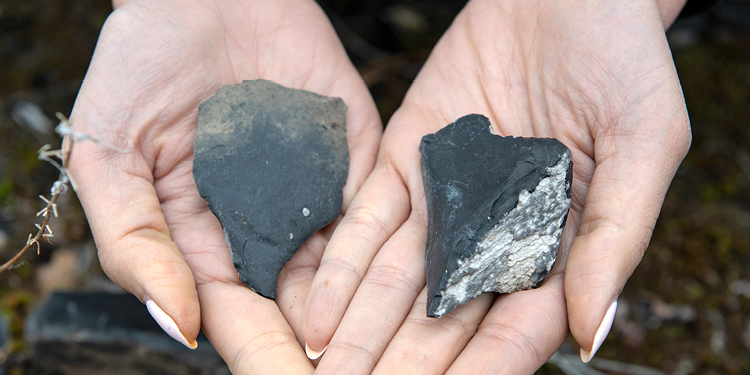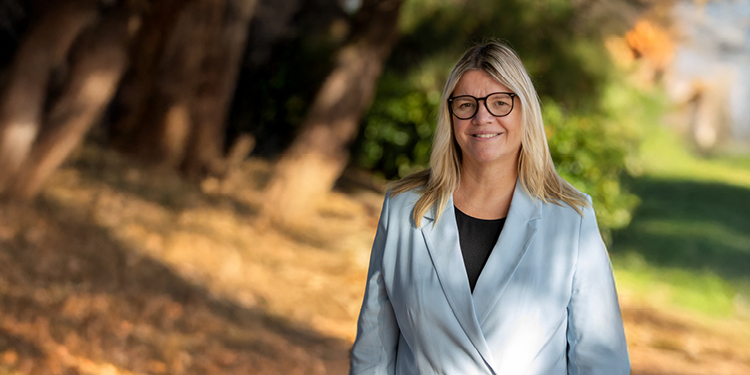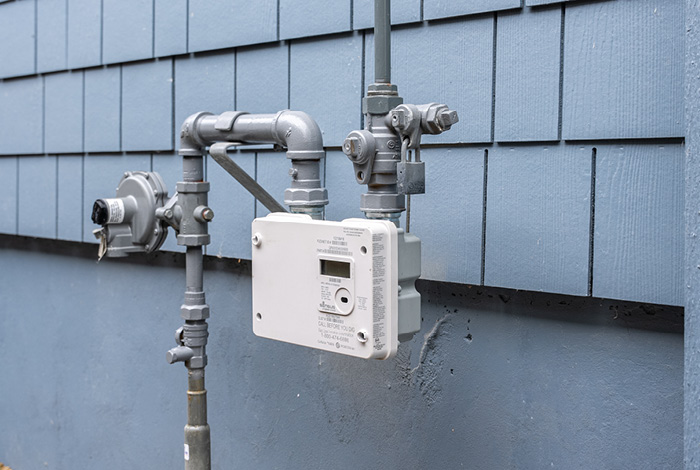How working with Indigenous contractors helps us grow
October 4, 2021
Photo was taken prior to COVID-19 physical distancing requirements.
The work we do crosses through traditional territories, and the skills and knowledge of Indigenous contractors are essential, including construction, environmental monitoring and site restoration. Guided by our Statement of Indigenous Principles, we’re always ready to collaborate with Indigenous business partners and ensure access to employment and economic opportunities for Indigenous Peoples.
One reason we’re able to work together is the trust and relationships we’ve built with Indigenous communities over the long term. And it’s Indigenous contractors who are helping provide us with the tools for ensuring more inclusive communications to support these relationships. Incorporating Indigenous knowledge into our practices makes us stronger and benefits our social, environmental and financial goals—and helps us all learn and grow on the journey toward Reconciliation. Meet Charla Huber and Janis Brooks, two Indigenous consultants who are helping to guide the conversation on inclusion and diversity at FortisBC.
An Indigenous lens
Charla Huber is a communications consultant, director of communications and Indigenous relations for the M’akola Housing Society (BC’s largest Indigenous non-profit housing provider) and a weekly columnist for the Times-Colonist newspaper. She has Chipewyan and Inuit ancestry and a passion for telling Indigenous stories and building stronger relationships between Indigenous communities and municipalities, organizations and businesses like FortisBC.
Most recently, Charla advised our team on how to communicate more effectively to, and about, Indigenous Peoples. In short, she explained how to add an “Indigenous lens” to communications such as websites, social media, ads and more. We all see the world through our own lens, Charla explained, which is shaped by our culture, values, life experiences and families.
Understanding the Indigenous lens requires considering Indigenous cultural values, as well as the history of colonization and how that affects Indigenous self-image. “It’s really just understanding that Indigenous people communicate differently and have different ways of demonstrating those values,” says Charla. “It’s not always about the intention of the writer, or the organization, but how it’s received. For example, reducing hierarchy when needed and valuing collective community and humility are all really key.”
Although Charla was raised in a non-Indigenous home, she has connected with many Indigenous communities through her research (including a master’s degree in Professional Communication at Royal Roads University), journalism and work with M’akola. She says understanding the little differences between Western and Indigenous cultures is fundamental to communicating and building relationships.
“I’ve had to walk in two worlds my whole life,” says Charla. “I don’t directly have connections to my home community, but I’ve had many Chiefs and Elders take me under their wing and Nations have welcomed me in … So, I understand both Indigenous and Western ways of communicating and those nuances between. I like to merge the two and use my life experience to sort of act as a translator.”
Reducing hierarchy when needed and valuing collective community and humility are all really key.
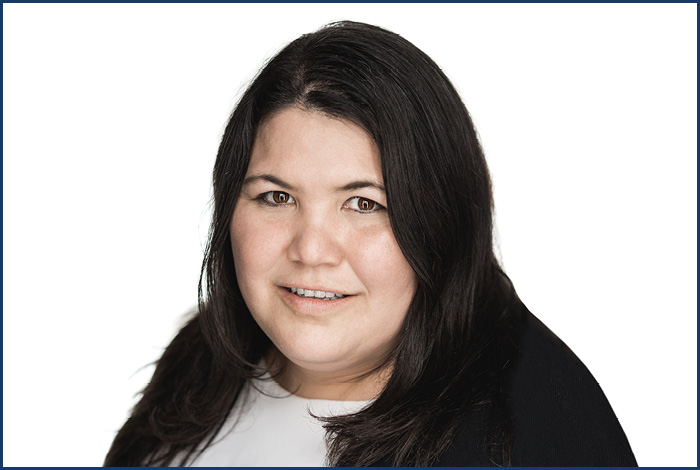
Charla Huber
Talking about inclusion and diversity
Janis Brooks is a consultant and managing partner with Indigenuity, a consulting group that focuses on building relationships between Indigenous communities and all kinds of organizations, companies and government.
Janis joined Indigenuity while working toward her Bachelor of Business Administration at Vancouver Island University and is now a partner in the business with her mom, who founded it after years of experience in Indigenous relations for Crown corporations and as an associate deputy minister in the provincial government. With strong ties to her First Nations culture, Janis says, “We’re an Indigenous mother-daughter team."
As Janis worked with FortisBC several years ago on developing our Indigenous awareness policies, she was well-suited to help us again with developing strategies and training to support inclusion and diversity. Indigenuity conducted a series of workshops with various teams in the company to help them learn about creating an inclusive culture, as well as working with our human resources team to shift the language of job descriptions and help attract more diverse candidates—for example, using gender-neutral expressions and avoiding colloquialisms that might confuse candidates whose first language isn’t English.
Janis describes the training focused on inclusion and diversity as “very in-depth and using a lot of reflection.” In exercises and conversations, participants looked at things like being aware of unconscious bias, our place on the “inclusion continuum”—and how that relates to others’ perspectives. “We make this approachable and relatable,” she adds. ”We don’t say, ‘This term is right, this term is wrong, these are words you can't say, these are what you can say.’ We instead work on building attitudes and outlooks and actions that make everyone feel included and safe, and then if you slip up on one or two of these other things, that’s okay because the relationships are there.”
Although inclusion is something we all want to get “right,” even the teachers are still learning. “We know this isn’t an overnight thing and that the learning is ongoing. You don’t do a session and become an expert. Even for myself and my colleague, Brock, who’s been working on this project, we’re always finding new resources, we’re always reading, we're always doing reflection and catching ourselves too. We work at it every day. It's not something that you ever master.”
The learning is ongoing. You don’t do a session and become an expert.
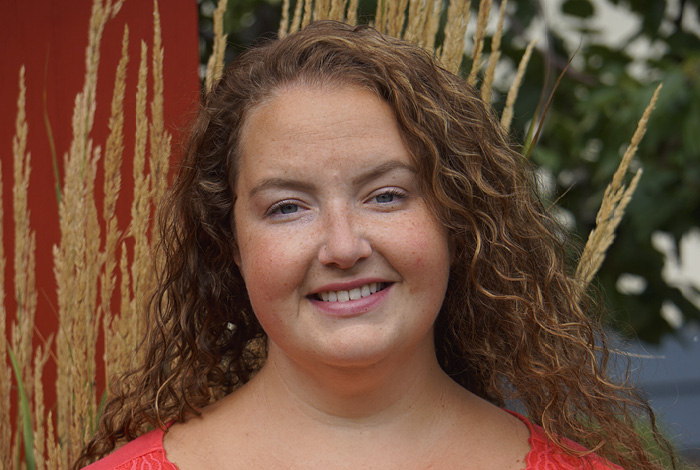
Janis Brooks
Building authentic, meaningful relationships
We believe that being inclusive and intentional with our words and actions is an important part of building trust and relationships with Indigenous communities. As Charla notes, “When working with Indigenous people—when people are trying, it’s very noticed and appreciated. Not everything is going to be perfect, but the fact that the effort is being made is really important.
“If I can help organizations like FortisBC understand Indigenous ways of communicating, and how to better communicate to and about Indigenous people in a meaningful way, that can help build even stronger relationships.”
Having those relationships in place sets the foundation for engagement, with mutual respect for different perspectives and a commitment to ensuring projects are beneficial to all. Indigenous communities and contractors gain access to jobs and business opportunities, while FortisBC benefits from local knowledge and expertise about the land and their skills and experience with energy projects.
“We like working with FortisBC, because they’re really committed to relationship building with communities,” says Janis, who conducted workshops with our Tilbury LNG Expansion project team. “Relationships have to be authentic and meaningful, not transactional or dependent on a certain project. Inclusion and diversity and equity are such a great fit with what we aspire to achieve because it really is about creating openness and communication, creating space for people to be authentic and valuing the experience and Indigenous knowledge that different people bring to the table.”
Striving for excellence together
We continue to seek opportunities to work with Indigenous partners, and seek guidance from them on the best ways to do that. We’re a proud member of the Canadian Council for Indigenous Business and committed to achieving Partnership Accreditation in Indigenous Relations certification as a great employer and business partner committed to prosperity in Indigenous communities.
To learn more about these opportunities, visit business development with Indigenous partners or email [email protected].

